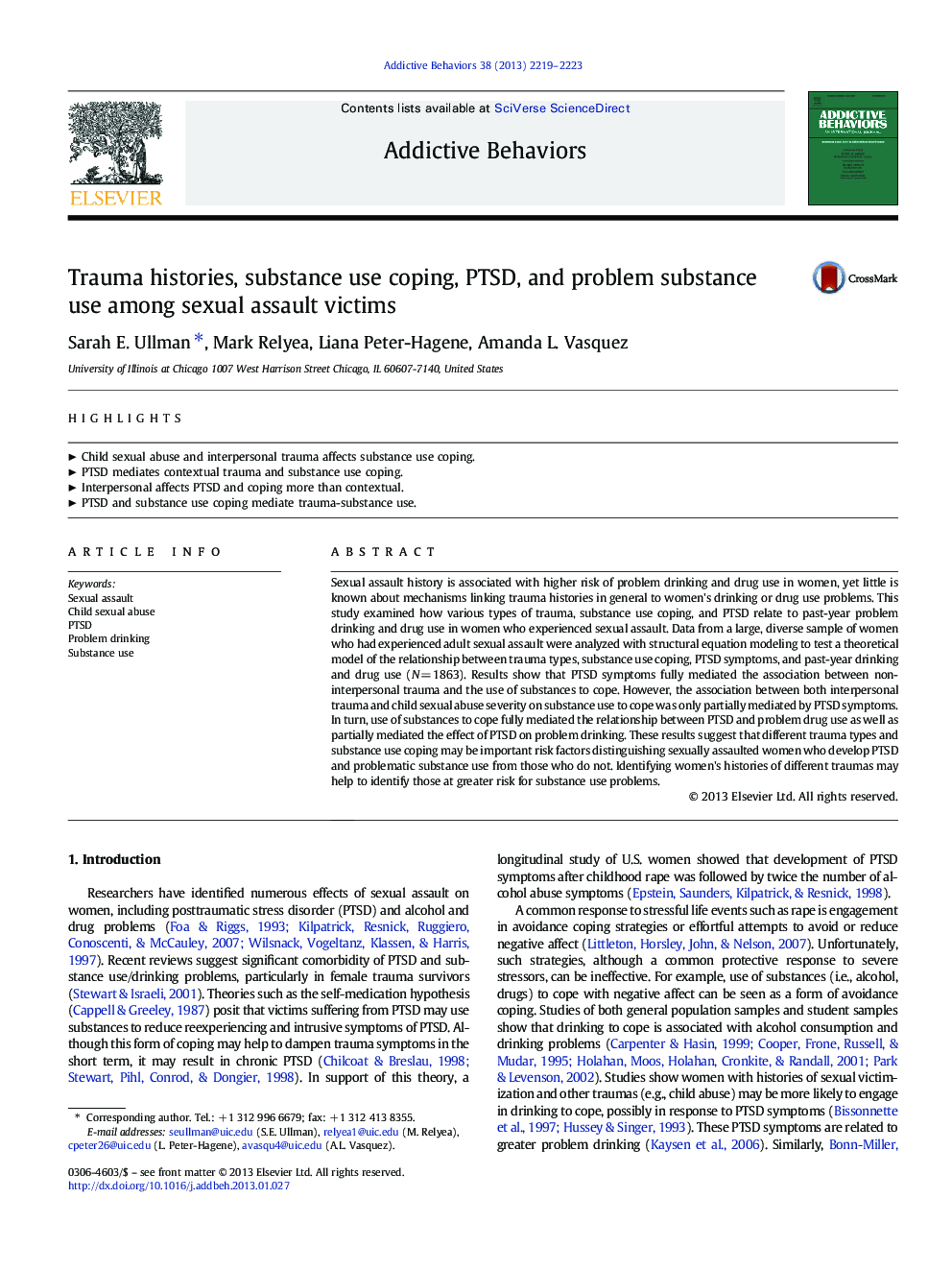| Article ID | Journal | Published Year | Pages | File Type |
|---|---|---|---|---|
| 899325 | Addictive Behaviors | 2013 | 5 Pages |
Sexual assault history is associated with higher risk of problem drinking and drug use in women, yet little is known about mechanisms linking trauma histories in general to women's drinking or drug use problems. This study examined how various types of trauma, substance use coping, and PTSD relate to past-year problem drinking and drug use in women who experienced sexual assault. Data from a large, diverse sample of women who had experienced adult sexual assault were analyzed with structural equation modeling to test a theoretical model of the relationship between trauma types, substance use coping, PTSD symptoms, and past-year drinking and drug use (N = 1863). Results show that PTSD symptoms fully mediated the association between non-interpersonal trauma and the use of substances to cope. However, the association between both interpersonal trauma and child sexual abuse severity on substance use to cope was only partially mediated by PTSD symptoms. In turn, use of substances to cope fully mediated the relationship between PTSD and problem drug use as well as partially mediated the effect of PTSD on problem drinking. These results suggest that different trauma types and substance use coping may be important risk factors distinguishing sexually assaulted women who develop PTSD and problematic substance use from those who do not. Identifying women's histories of different traumas may help to identify those at greater risk for substance use problems.
► Child sexual abuse and interpersonal trauma affects substance use coping. ► PTSD mediates contextual trauma and substance use coping. ► Interpersonal affects PTSD and coping more than contextual. ► PTSD and substance use coping mediate trauma-substance use.
